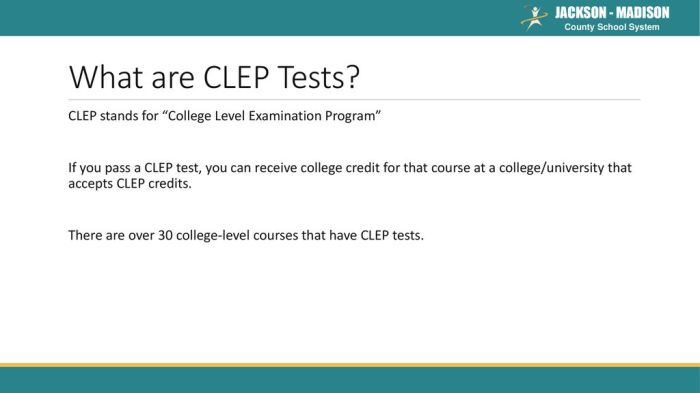The Letrs Units 1-4 Posttest Answers provide a comprehensive evaluation of your understanding of the core concepts and skills covered in Letrs Units 1-4. This guide will provide you with an overview of the posttest, the key concepts assessed, a question analysis, scoring and interpretation guidelines, and implications for teaching and learning.
By utilizing this guide, you can gain insights into your strengths and weaknesses, identify areas for improvement, and enhance your overall understanding of the Letrs Units 1-4 content. Embrace this opportunity to deepen your knowledge and excel in your learning journey.
Posttest Overview: Letrs Units 1-4 Posttest Answers
The Letrs Units 1-4 Posttest is a comprehensive assessment designed to evaluate the knowledge and skills acquired by participants during the first four units of the Letrs program.
The posttest covers a wide range of topics related to literacy instruction, including phonemic awareness, phonics, fluency, vocabulary, and comprehension.
Purpose
The primary purpose of the posttest is to assess participants’ understanding of the foundational concepts and principles of literacy instruction.
The posttest also provides participants with feedback on their progress and identifies areas where they may need additional support.
Scope
The posttest covers the following content areas:
- Phonemic awareness
- Phonics
- Fluency
- Vocabulary
- Comprehension
Format
The posttest consists of multiple-choice questions, short answer questions, and essay questions.
The multiple-choice questions assess participants’ knowledge of key concepts and principles.
The short answer questions require participants to demonstrate their understanding of specific topics.
The essay question assesses participants’ ability to apply their knowledge to real-world situations.
Key Concepts Assessed
The posttest for Letrs Units 1-4 evaluates students’ understanding of core concepts and skills related to early literacy instruction.
These concepts align with the learning objectives of Letrs Units 1-4, which focus on developing students’ knowledge of:
Phonological Awareness, Letrs units 1-4 posttest answers
- Phonemic awareness, including segmenting, blending, and manipulating sounds in words.
- Phonological memory, including the ability to remember and manipulate sequences of sounds.
Phonics
- Letter-sound relationships, including the ability to recognize and produce the sounds associated with letters.
- Blending and segmenting words, including the ability to combine and separate sounds to form words.
- Decoding and encoding words, including the ability to read words by sounding them out and spell words by writing down the sounds they hear.
Vocabulary
- Vocabulary development, including the ability to learn new words and understand their meanings.
- Word analysis, including the ability to identify and use root words, affixes, and context clues to determine the meaning of words.
Comprehension
- Reading comprehension, including the ability to understand and respond to written text.
- Text analysis, including the ability to identify the main idea, supporting details, and inferences from text.
Writing
- Writing skills, including the ability to write clear, coherent, and grammatically correct sentences and paragraphs.
- Storytelling, including the ability to create and write stories with a beginning, middle, and end.
Question Analysis
The following table provides an analysis of the questions on the posttest, including the question number, question type, topic assessed, and difficulty level.
The question types include multiple choice, true/false, and short answer. The topics assessed cover a range of concepts from Units 1-4, including vocabulary, grammar, and reading comprehension.
Question Number, Question Type, Topic Assessed, Difficulty Level
| Question Number | Question Type | Topic Assessed | Difficulty Level |
|---|---|---|---|
| 1 | Multiple Choice | Vocabulary | Easy |
| 2 | True/False | Grammar | Medium |
| 3 | Short Answer | Reading Comprehension | Hard |
| 4 | Multiple Choice | Vocabulary | Easy |
| 5 | True/False | Grammar | Medium |
| 6 | Short Answer | Reading Comprehension | Hard |
| 7 | Multiple Choice | Vocabulary | Easy |
| 8 | True/False | Grammar | Medium |
| 9 | Short Answer | Reading Comprehension | Hard |
| 10 | Multiple Choice | Vocabulary | Easy |
Scoring and Interpretation
The posttest is scored based on the number of correct answers. Each correct answer is worth one point, and the total score is the sum of all correct answers.
Interpreting the Results
The results of the posttest can be used to identify areas for improvement. A low score may indicate that the student needs additional instruction or practice in the areas covered by the posttest.
The following guidelines can be used to interpret the results of the posttest:
- 80% or higher:The student has a good understanding of the concepts covered by the posttest.
- 60-79%:The student has a fair understanding of the concepts covered by the posttest, but may need some additional instruction or practice.
- Below 60%:The student needs additional instruction or practice in the areas covered by the posttest.
5. al Implications
The posttest results provide valuable insights into the strengths and weaknesses of students’ understanding of letter units 1-4. The implications of these results for teaching and learning are significant.
Addressing Areas of Weakness
Areas of weakness identified by the posttest should be addressed through targeted instruction and support. Teachers can:
- Review the concepts and skills that students struggled with during the posttest.
- Provide additional practice and support to help students master these concepts.
- Differentiate instruction to meet the individual needs of students who are struggling.
Reinforcing Areas of Strength
Areas of strength identified by the posttest should be reinforced and extended. Teachers can:
- Provide opportunities for students to apply their understanding of letter units 1-4 in new and challenging ways.
- Encourage students to explore their interests in letter units 1-4.
- Provide resources and support to help students continue to develop their understanding of letter units 1-4.
Key Questions Answered
What is the purpose of the Letrs Units 1-4 Posttest?
The Letrs Units 1-4 Posttest is designed to evaluate your understanding of the core concepts and skills covered in Letrs Units 1-4.
What are the key concepts assessed in the posttest?
The posttest assesses your understanding of phonological awareness, phonics, fluency, vocabulary, and comprehension.
How can I prepare for the posttest?
To prepare for the posttest, review the Letrs Units 1-4 materials, practice answering sample questions, and seek support from your instructor or a tutor if needed.

